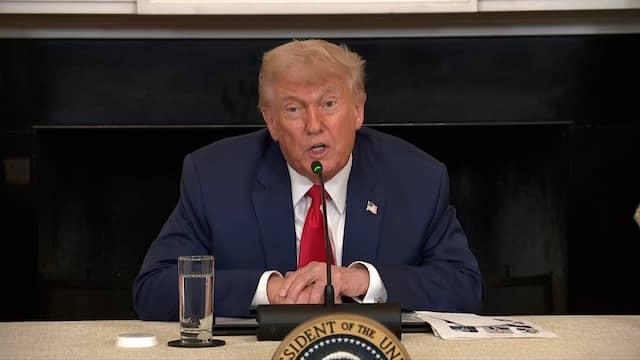The Rising Tension Between Federal Policies and Local Protections
The clash between federal immigration policies and local protections is reaching a boiling point, with cities that pride themselves as sanctuaries for immigrants facing unprecedented pressures. As the Trump administration intensifies its mass deportation efforts, local governments have found themselves trapped between federal mandates and their commitments to uphold the rights and safety of their undocumented communities. Leaders in many urban centers, such as San Francisco and New York, are reaffirming their positions against deportations, often implementing measures that shield vulnerable populations from aggressive federal actions. These city administrations cite a moral obligation to protect their residents and a belief in community cohesion as central tenets of their policies.Moreover, grassroots advocacy groups are mobilizing to push back against the federal government, arguing that such deportation tactics disrupt families and undermine local economies. The conflict illustrates a profound rift in American society, were disparate visions of identity and belonging collide. Immigrants are not merely statistics in a political game; thay are integral to the fabric of cities, contributing to cultural diversity and economic resilience. As the federal government seeks to bolster enforcement, local jurisdictions are increasingly asserting their rights to govern in alignment with the values of the communities they serve, resulting in a standoff that could reshape the landscape of immigration policy in the United States.
Impacts on Communities: Voices from Immigrant Neighborhoods
The mass deportation initiatives spearheaded by the Trump administration have unleashed a palpable wave of fear and uncertainty within immigrant neighborhoods across the nation. Residents, long accustomed to the vibrant tapestry of multiculturalism, now find themselves grappling with the haunting question of who might be next. As families are torn apart and local communities destabilize, the very fabric of communal life frays under the weight of these policies. Citizens recount stories of panic during nightfall, children left to navigate their futures alone, and businesses struggling to maintain their workforce. This palpable anxiety has transformed the town square from a hub of social interaction into a place dotted with whispers and wary glances, as everyone tries to gauge the next move of the immigration authorities.
Community leaders are mounting a concerted effort to articulate the challenges faced by their constituents, emphasizing the importance of understanding the long-term impacts of such harsh measures. Through grassroots organizing and outreach, immigrants are raising their voices, illuminating issues such as access to education, healthcare, and job security. The following concerns echo throughout neighborhood assemblies and public forums:
- Increased fear among families leading to decreased participation in community events.
- Economic instability as local businesses experience worker shortages and declining consumer confidence.
- Diminished access to essential services as individuals avoid seeking help due to fears of deportation.
As the clash between bold political agendas and the daily realities of immigrant lives persists, the resilience of these communities might potentially be their most powerful tool. Though, the ongoing struggle to balance hope with the looming threat of deportation remains a challenging narrative to navigate.

navigating the Legal Landscape: Options for Cities and Immigrants
As cities increasingly find themselves at odds with federal immigration policies, alternatives are emerging that offer hope and protection to immigrants facing the specter of mass deportation. local governments are stepping up to establish sanctuary policies, which may include measures such as:
- Limiting cooperation with federal immigration authorities
- Implementing local ordinances to protect community members from discrimination based on immigration status
- providing legal resources and support for immigrants needing assistance
Furthermore, advocacy groups are working tirelessly to navigate this complex legal landscape, pushing for reforms that advocate for immigrants’ rights. Lawsuits challenging the constitutionality of sweeping deportation measures have gained traction, highlighting the intersection of civil rights and immigration law. Cities can also engage in grassroots efforts, such as:
- Conducting community education initiatives about immigrant rights
- Partnering with local nonprofits to provide essential services
- Encouraging civic participation among immigrant populations through voter registration drives

Building Resilience: Strategies for Supporting Vulnerable Populations
As cities grapple with the fallout from a mass deportation initiative, building a robust support system for vulnerable populations has never been more critical. Local organizations and community leaders are banding together to provide essential resources and facilitate safe spaces for individuals living in fear. This collaborative approach focuses on several key strategies:
- legal Assistance: Providing immigrants with access to legal aid services ensures that they can navigate complex immigration processes and understand their rights.
- Community Education: Workshops and informational sessions aimed at demystifying the legal landscape empower individuals to make informed decisions regarding their status.
- Emergency Support Services: establishing hotlines and emergency funds can help families facing immediate crises, offering financial aid for housing, food, and healthcare.
- Advocacy and Representation: Engaging with policymakers and pushing for humane immigration reform can influence local and national policies that affect the lives of millions.
Moreover,fostering a culture of solidarity within communities plays a vital role in resilience building. Initiatives such as community outreach programs enhance support networks and encourage mutual aid among residents. Collaborations with local businesses to create job opportunities and mentorship programs can significantly uplift those affected by deportation fears. Emphasizing inclusivity through cultural events and celebrations not only strengthens community bonds but also combats the stigmatization of immigrant populations, laying the groundwork for a more equitable future.
